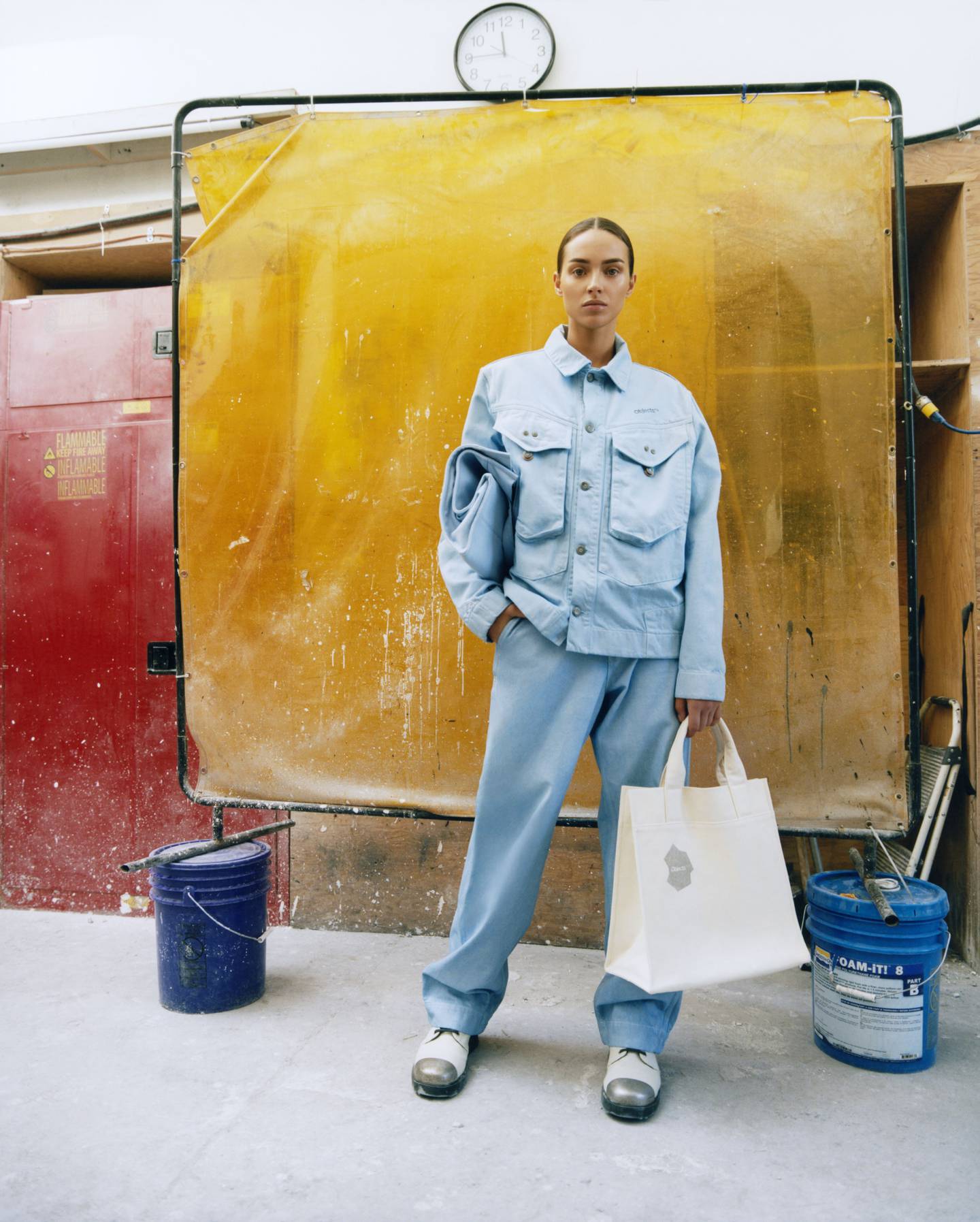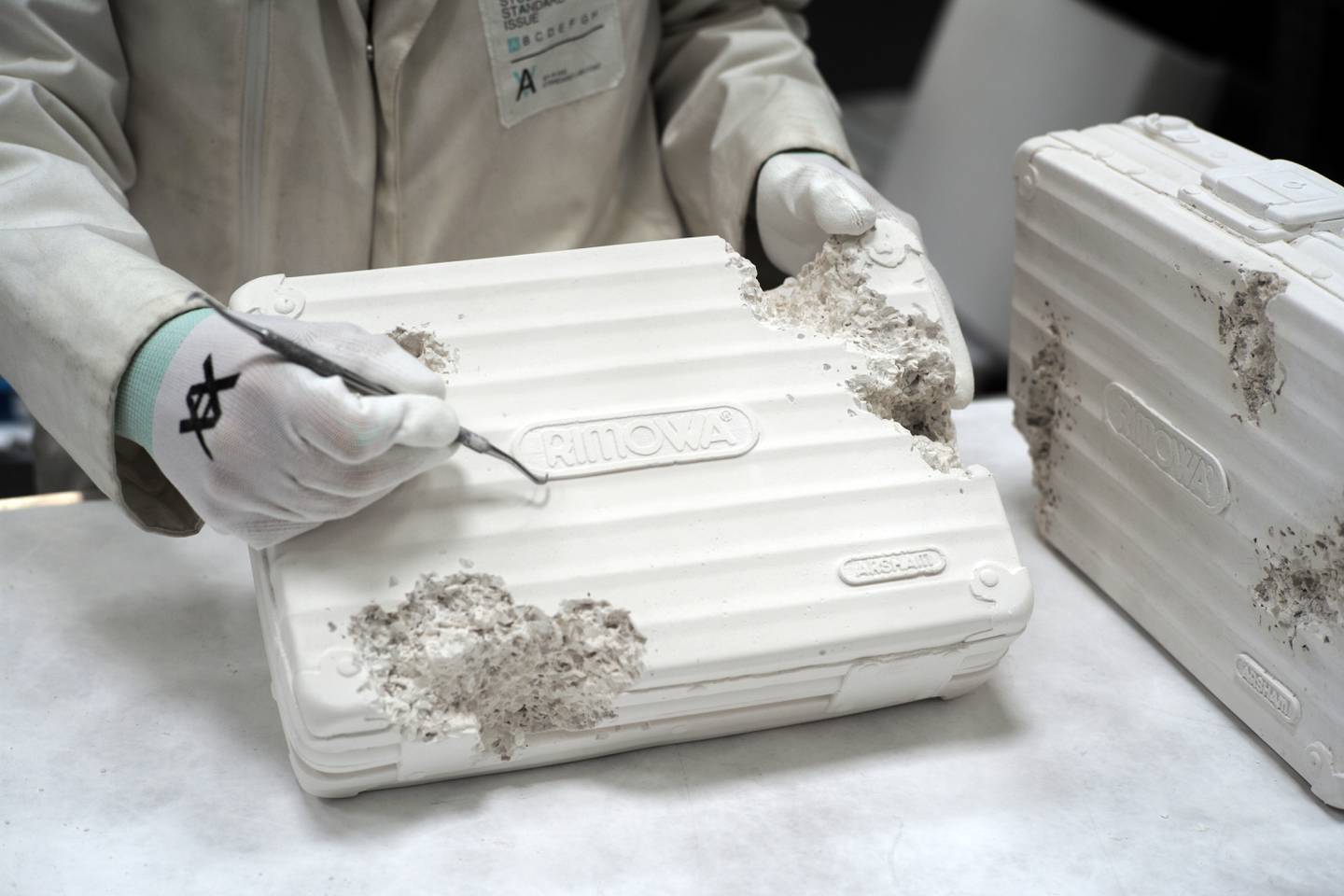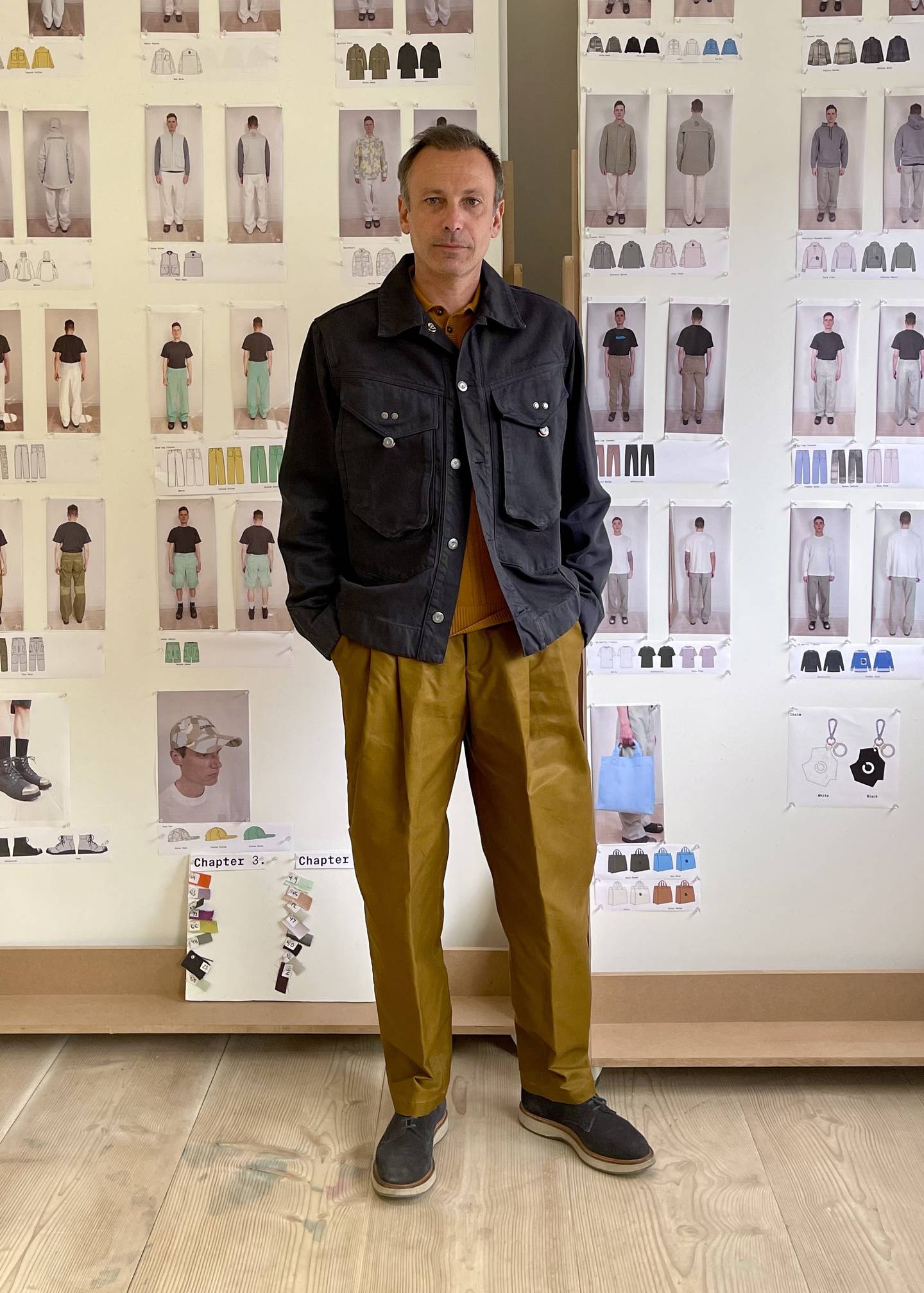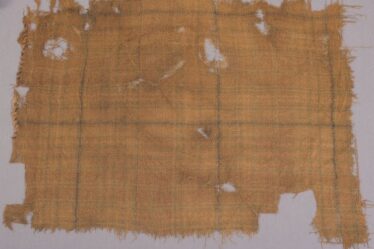
LONDON — Daniel Arsham shot to art-stardom with a concept he calls “fictional archeology,” using materials like sand, selenite crystals and volcanic ash to render objects from the recent past as eroded relics from a lost civilisation. Populating his postmodern Pompeii are icons of pop and consumer culture — from Ninetendo’s Game Boy to Pokémon characters to the Ferrari from Ferris Bueller’s Day Off — recast as timeless artefacts.
The approach has helped make Arsham fashion’s go-to artist. In the last five years, the multidisciplinary creator — whose work spans art, architecture, design, film and performance — has collaborated with the likes of Dior, Tiffany, Rimowa, Adidas and Uniqlo, often lending their products the gravitas of geological time, as well as limited-edition buzz.
Now, Arsham is launching a fashion label of his own, Objects IV Life. Its debut drop, a collection of unisex workwear, will land today at Kith’s Paris flagship and online. The clothes reflect Arsham’s personal style. “Things I would wear in the studio,” he said. “I designed them for me.”
Fashion labels routinely align themselves with artists to elevate their brands. But Arsham’s projects stand apart for the way they seamlessly unite art world credibility and mass appeal.
Arsham, who was born in Cleveland and raised in Miami before moving to New York, is often compared to Virgil Abloh. His work is both high-concept and deliberately accessible. It’s sold by streetwear emporium Kith as well as blue-chip gallerist Emmanuel Perrotin. “Art is for everyone,” said Arsham. “I’m trying to create a diverse range of price points.”
Equal parts artist and entrepreneur, Arsham is a savvy marketer. He is friends with celebrities like Jay-Z and Pharrell, and plays well on Instagram, where he has attracted 1.2 million followers, making him one of the most popular artists on the platform. In 2020, he became the first-ever creative director of the Cleveland Cavaliers.

“Tradition and modernity are things we try to marry and Daniel helps us to do that,” said LVMH scion Alexandre Arnault, who has commissioned Arsham to create Rimowa suitcases and Tiffany boxes in his signature style. “Plus, he’s very powerful on social media and being part of this conversation has been successful for us. He’s helped us to reach a new client base.”
The new brand is a joint venture with London-based brand accelerator Tomorrow, which provides investment and access to shared services, from production to distribution, to a stable of emerging labels, including Martine Rose, Loverboy by Charles Jeffrey, Arnaud Vaillant and Sébastien Meyer’s Coperni and Samuel Ross’ A-Cold-Wall.
It was Ross who first introduced Tomorrow’s CEO Stefano Martinetto to Arsham. Martinetto was looking for fresh perspectives to grow his portfolio and saw an opportunity to harness Arsham’s vision and reach to power a new brand, informed by the artist’s own wardrobe, his sculptures’ reduced palette of neutrals and pastels (Arsham is, in fact, colourblind) and the potential of using deadstock materials.
Arsham was not a fashion designer, but Tomorrow’s competitors had seen success backing non-traditional creative directors. New Guards Group’s most famous designer, Virgil Abloh, began as a fashion outsider. The group has also launched a line with DJ Peggy Gou. Meanwhile, Comme des Garçons has partnered with the likes of Gosha Rubchinskiy and Honey Dijon.
In late 2019, Arsham and Martinetto established a joint venture (Arsham owns the intellectual property) and began building a small but skilled team that includes Tomorrow’s chief development officer Julie Gilhart, former Acne Studios design director Matthew Grant and Burberry’s former chief merchandising officer Judy Collinson.

The brand’s first “chapter” is classic without being boring. The collection includes functional jackets, jeans, T-shirts and hoodies. There’s also a utility boot, a cap, a canvas tote bag and a key charm. Everything is manufactured in Portugal, New York and Los Angeles, with custom hardware coming from Italy. The denim and tote are made from deadstock. Prices range from €180 for a graphic T-shirt to €850 for a utility jacket.
Distribution is evenly split between direct-to-consumer and a handful of retail partners, including Selfridges, Ssense and Kith. Drops will be pegged to real-world seasons, as well as art happenings. The team has already developed second and third “chapters” inspired by hiking.
“The opportunity is huge,” said Martinetto. “The audience is really wide, from serious collectors to the kids.” Martinetto believes the label can scale to rival cult designer brands like Jacquemus, Dries Van Noten and Ami. “This is not a hype project,” he said.



